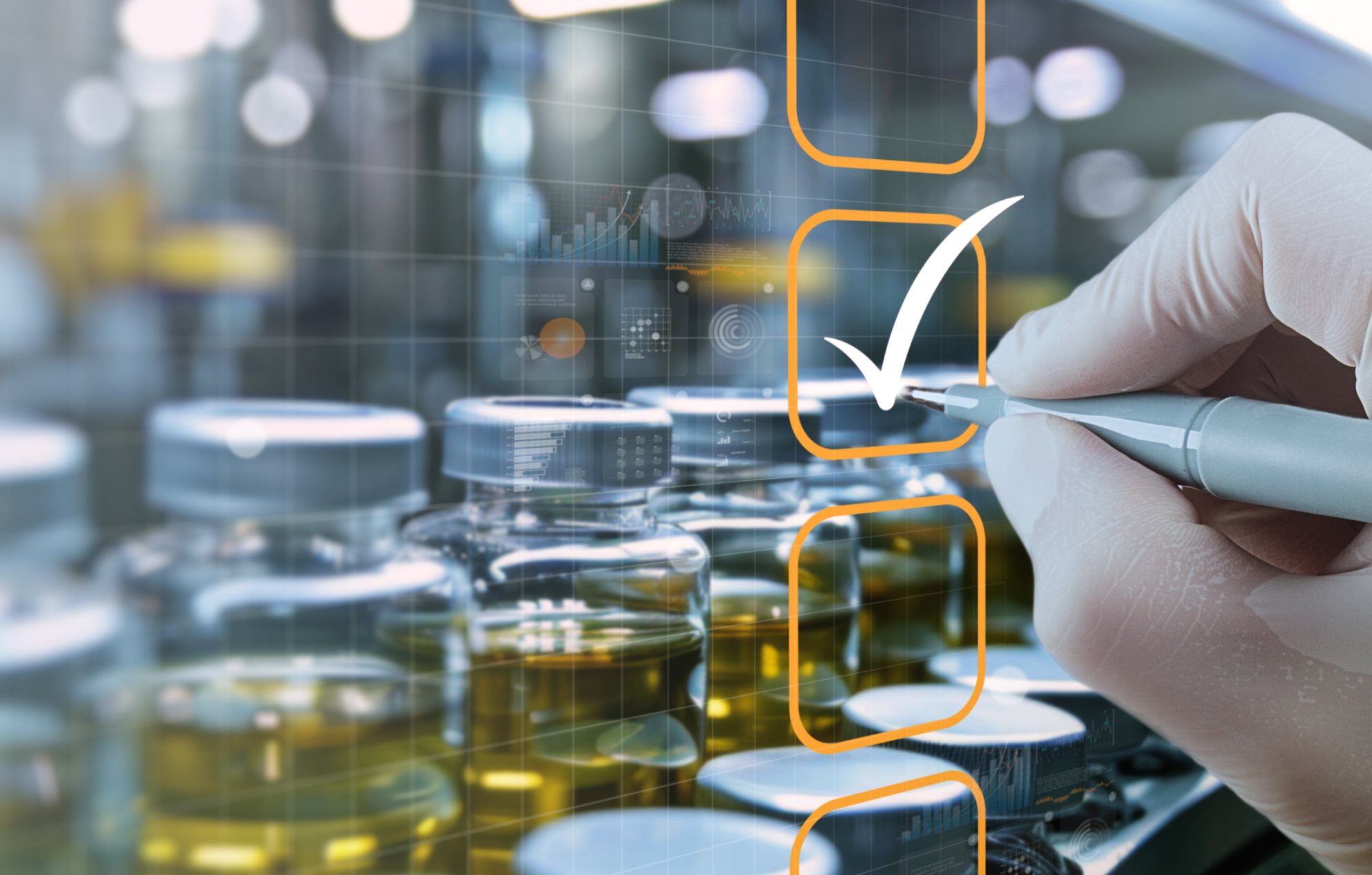In the pharmaceutical and medical device industries, microbial contamination poses a significant risk to patient health and manufacturers’ reputation and regulatory compliance. Microbiology testing is critical in mitigating these risks, ensuring products are free from harmful microorganisms, and meeting stringent regulatory standards.
At Infinity Laboratories, our comprehensive microbiology testing services help pharmaceutical and medical device manufacturers safeguard their products throughout production. This blog explores why microbiology testing is vital for the pharmaceutical and medical device industries and how Infinity Laboratories supports these industries in maintaining product safety and compliance.
Why Microbiology Testing is Crucial for Pharmaceuticals and Medical Devices
Why Microbiology Testing is Crucial for Pharmaceuticals and Medical Devices
Microbiology testing ensures the sterility and safety of pharmaceutical and medical device products. Here are some of the main factors driving the importance of microbiological testing in these fields:
1. Preventing Contamination
Microbial contamination can occur at any stage of the manufacturing process, from raw materials to final product packaging. Contaminants like bacteria, fungi, yeasts, and viruses can cause adverse reactions, infections, and sometimes even death. Contaminated pharmaceutical products or medical devices that come into contact with patients or are introduced directly into the bloodstream, such as syringes, catheters, and implants, pose significant risks.
For pharmaceutical products, such as intravenous drugs or injectables, the presence of harmful microorganisms can result in life-threatening complications. Non-sterile products, such as topical creams or oral medications, also must be tested for acceptable levels of microbial contamination to prevent infections or spoilage.
Additionally, medical devices must also undergo rigorous sterility testing. To reduce the incidence of hospital-acquired infections, devices intended to be used in sterile environments, such as surgical tools, implants, and catheters, must be free from microorganisms that could lead to patient infections.
Infinity Laboratories offers comprehensive microbiology testing solutions, including sterility testing, to help manufacturers detect contamination early in the production process and prevent compromised products from reaching the market.
2. Meeting Regulatory Standards
Both the pharmaceutical and medical device industries are subject to stringent regulatory oversight from agencies such as the U.S. Food and Drug Administration (FDA), the European Medicines Agency (EMA), and International Organization for Standardization (ISO). These regulatory bodies have established specific guidelines for microbiological testing to ensure that products are safe for use.
For pharmaceuticals, the FDA’s current Good Manufacturing Practices (cGMP) guidelines require manufacturers to test for microbial contamination, including sterility testing for products labeled as sterile, endotoxin testing to detect harmful bacterial toxins, and microbial limits testing for non-sterile products. Failing to meet these standards can result in costly recalls, product liability lawsuits, and reputational damage.
Similarly, medical device manufacturers must comply with regulatory guidelines such as ISO 13485, which mandates sterility testing and other microbiological evaluations. Infinity Laboratories adheres to these industry standards, providing pharmaceutical and medical device companies with the necessary testing services to meet regulatory requirements and avoid potential legal and financial consequences.
3. Endotoxin Testing: Protecting Patients from Harmful Toxins
In addition to detecting viable microorganisms, microbiology testing also helps identify non-living bacterial components, such as endotoxins. Endotoxins are toxic substances that are released when certain bacteria die and can cause severe reactions in humans, including fever, septic shock, and organ failure.
Endotoxin testing is critical for pharmaceutical products and medical devices that come into contact with the bloodstream or sterile body areas, such as intravenous drugs, dialysis machines, and surgical implants. The FDA and other regulatory agencies require manufacturers to conduct endotoxin testing to ensure their products are free from harmful levels of endotoxins.
Infinity Laboratories uses the Limulus Amebocyte Lysate (LAL) test, the industry standard for detecting endotoxins, to ensure that products meet safety standards and do not pose a risk to patients.
4. Microbiology Testing Ensures Product Efficacy and Shelf Life
Microbiological contamination can compromise the efficacy and shelf life of pharmaceutical products. The presence of microorganisms can cause chemical changes in the active ingredients of medications, rendering them less effective or completely ineffective. In addition, microbial growth can lead to product spoilage, especially in non-sterile products such as oral medications, topical creams, and over-the-counter drugs.
Pharmaceutical manufacturers rely on microbiological testing to assess the preservative efficacy of their products. Preservative efficacy testing (PET) evaluates whether the preservatives in a product are effective at inhibiting microbial growth over time. This testing is particularly important for products with a long shelf life or stored in environments where contamination could occur.
Medical devices, especially those with long shelf lives, must also undergo testing to ensure they remain sterile and effective throughout their intended use period. Infinity Laboratories provides preservative efficacy testing and other microbiological evaluations to help manufacturers maintain product quality and extend shelf life.
5. Environmental Monitoring: Protecting Cleanroom Integrity
In the pharmaceutical and medical device industries, cleanrooms are critical in preventing microbial contamination during manufacturing. Cleanrooms are highly controlled environments designed to minimize the presence of airborne particles, including microorganisms. Regular environmental monitoring is essential to ensure that cleanrooms remain free from contamination and that products manufactured in these environments meet regulatory standards.
Environmental monitoring involves testing air, surfaces, water, and personnel in cleanroom environments to detect the presence of microorganisms. Any breach in contamination control can compromise the safety and sterility of pharmaceutical products or medical devices.
Infinity Laboratories offers environmental monitoring services to help manufacturers maintain cleanroom integrity and comply with regulatory requirements.
Key Microbiology Testing Services Offered by Infinity Laboratories
Key Microbiology Testing Services Offered by Infinity Laboratories
Infinity Laboratories provides a comprehensive range of microbiology testing services tailored to the needs of the pharmaceutical and medical device industries. Our team acts as an extension of yours to determine the assays suited to your pharmaceutical or medical device product. All tests are conducted in our GMP-compliant laboratories and under standards set by the United States Pharmacopeia (USP). Our services include:
Container Closure Testing/Microbial Ingress: Confirms that medical devices will not allow microorganisms into patients through any point of entry by validating container closure systems.
Standard: USP <1207>
Endotoxin Testing: Detects bacterial endotoxins on medical devices or pharmaceutical injectables using Limulus amebocyte lysate (LAL), prepared as a LAL reagent.
Standard: USP <85>
Media Fill: Process simulation that assesses the performance of an aseptic manufacturing procedure by replacing the pharmaceutical product with a sterile culture media. Regularly conducted to confirm that mixing and handling techniques are adequate and consistent.
Standard: Client Specific
Method Suitability (B&F): Validation of sterility testing method to confirm that it is suitable for your pharmaceutical or medical device product under USP 71 pharmacopeia and GMP microbiology standards.
Standard: USP <71>
Microbial Examination: Conducted to measure the quantity of microorganisms or detect the presence or absence of specific microorganisms in a nonsterile pharmaceutical drug product.
Standard: USP <61>, USP <62>
Microbial Identification: Detects the presence of microorganisms in a pharmaceutical drug product using either the Vitek® or MicroSEQ Rapid Microbial ID Systems.
Standard: Vitek®, MicroSEQ
Microbial Limits: Quantifies how many microorganisms are present in a nonsterile pharmaceutical drug product by adding a product sample to a cell medium for three to five days.
Standard: USP <61>, USP <62>
Sterility Testing: Method development and testing of the sterility of the final pharmaceutical or medical device product under USP 71 pharmacopeia standards and GMP microbiology standards. Membrane Filtration tests and direct inoculation methods are conducted.
Standard: USP <71>
Sterility Testing, Rapid (5 Day): Sterility test to detect microbial contamination in a finished drug product with a reduced timeline of just five days using the Milliflex® Rapid Microbiology Detection System or the 7-day BacTAlert 3D Microbial Identification System.
Standard: Milliflex®, BacTAlert
Conclusion
Conclusion
Microbiology testing is critical to product safety and regulatory compliance in the pharmaceutical and medical device industries. With the potential for contamination to cause life-threatening complications, product recalls, and legal repercussions, manufacturers must prioritize microbiological evaluations throughout the production process.
Infinity Laboratories offers industry-leading microbiology testing services, helping companies detect contamination, meet regulatory standards, and protect patient safety. By partnering with Infinity Laboratories, pharmaceutical and medical device manufacturers can ensure the safety, quality, and efficacy of their products, safeguarding both their consumers and their reputation.
Contact Infinity Laboratories today to learn more about how our microbiology testing services can support your manufacturing processes and ensure the safety of your products.


